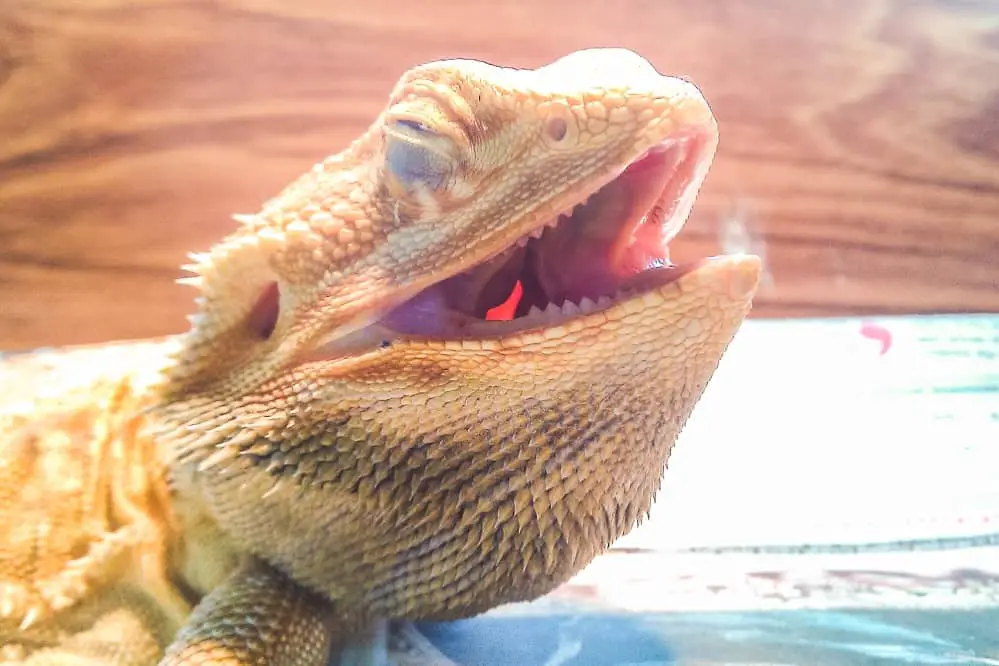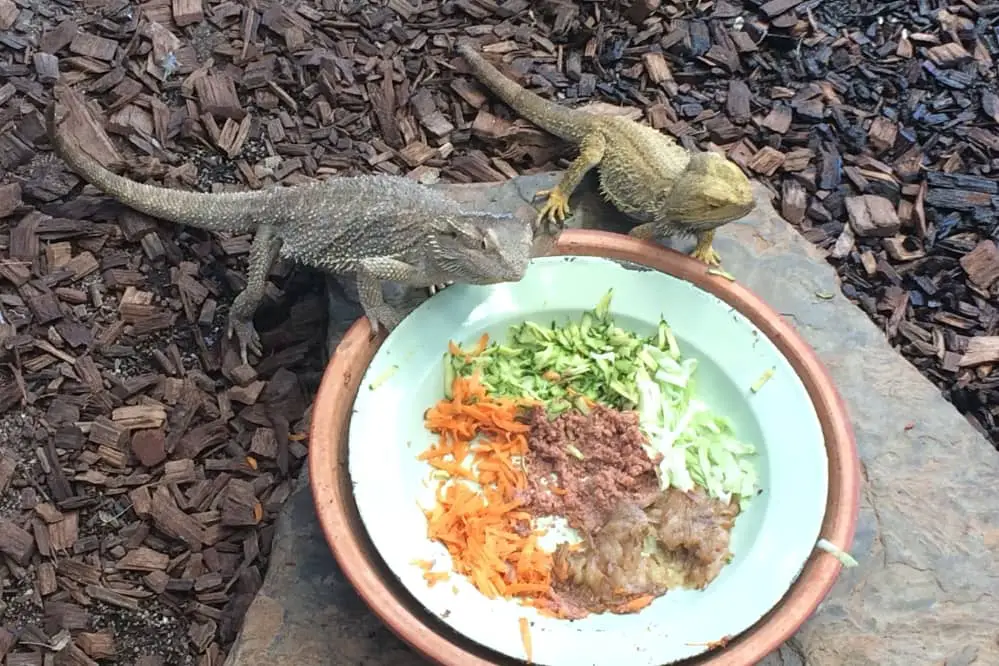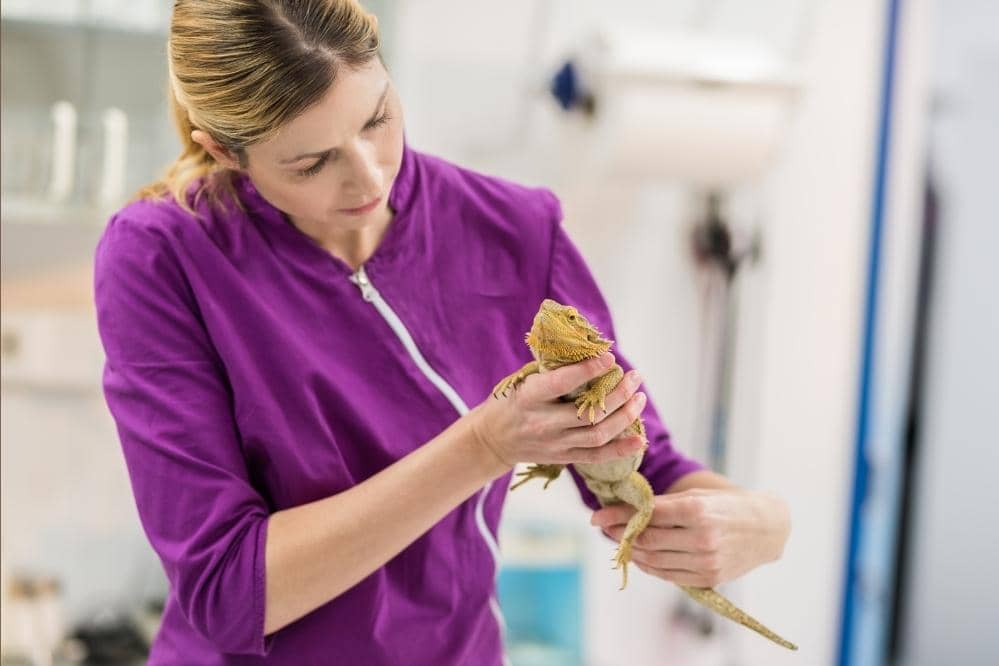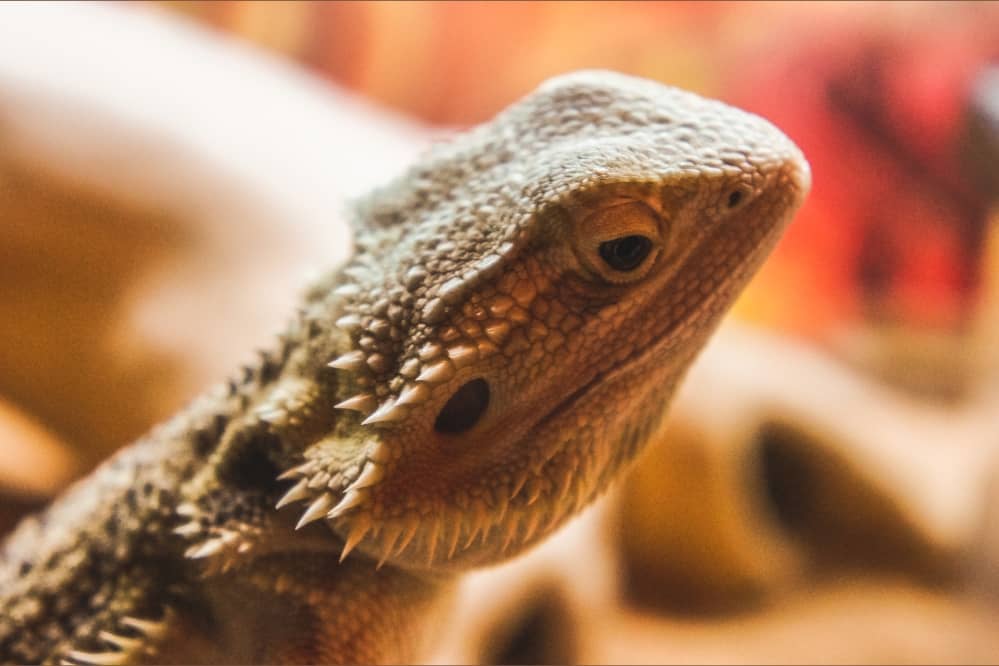By nature, bearded dragons are sturdy or hardy animals that don’t get sick often. This is one of the main factors that make reptile fanciers love bearded dragons as a pet. However, it’s not that it is impossible for them to get sick. Like any other living thing, they can develop certain health issues, primarily when there is some issue with their habitat or food. Out of a few health issues that bearded dragons may suffer, impaction is the issue that beardies have to face often.
Impaction is a condition that develops when a bearded dragon is unable to digest the food, or its gut is blocked, and he can’t pass food out through the digestive tract. This may happen due to various reasons. Though impaction resembles a lot of constipation or bloating, it is a lot more severe and life-threatening than both. In fact, impaction is one of the leading causes of death in bearded dragons. However, you can save your bearded friend’s life by detecting timely (before things get worse) and knowing how to proceed. So as a responsible beardie’s owner, you should know common signs that bearded dragons usually show when they suffer from impaction.
We will also briefly discuss the common causes of impaction, its prevention, and its cure in the latter half of the article; however, let’s have a look at the common signs of impaction in bearded dragons first.
Common Signs Of Impaction In Bearded Dragons
When a bearded dragon is impacted, it shows many physical and behavioral signs. For early detection of signs, it’s crucial to closely observe your beardies routine and behavior when he is healthy. If you know his usual routine, only then you will be able to detect any change in his behavior at the very beginning. And remember that early detection is the key to saving your beardie’s life. Because if impaction is not treated timely, it can lead to severe intestinal infection and other complications, making it difficult to treat. Some common signs of impaction are listed below.

1. Difficulty To Pass Stool
The first sign that should make you alert and check for other signs of impaction is a decrease in the poop frequency. If you observe that your beardie is popping less than routine or he feels it difficult to pass stool, he is most like to have impaction. In addition, an impacted bearded dragon will pass scanty and dry (blood stained sometimes) stool or may not pass stool at all at the latter stages.
2. Awkward Gait / Lack Of Mobility
In bearded dragons, the stomach and intestines are found just below the spine, and unlike other animals, beardies don’t have protective discs between their vertebrae. So when their gut is impacted and inflates due to food accumulation, it puts pressure on the spine. It leads to partial paralysis of the fore legs (when the higher gut is blocked) and partial paralysis of the hind legs (if the lower gut is blocked). In the latter stage, all four legs may be affected.
So if you notice your bearded dragon has an awkward gait or does not move as frequently as he usually does, he may be impacted. This sign may not be present or evident initially, but as the impaction progresses this sign will begin to become more obvious.
3. Bloated Abdomen
Since an impacted bearded dragon can’t digest and pass food through its digestive tract, the feed accumulates in the gut, leading to a swollen belly, giving the body a swollen or bloated appearance. So if your bearded friend appears abnormally enlarged, it is most likely to be impacted.
4. Regurgitation (Digestive Problems)
When the digestive tract is blocked, and food is accumulated in the gut, it becomes difficult to digest newly ingested food. A bearded dragon’s digestive process is hampered by its inability to digest and pass faces, which forces food out through the wrong end, making the bearded dragon vomit or regurgitate.
5. Weight Loss / Loss of Appetite

Generally, bearded dragons have a good appetite and are not choosy when it comes to eating and will gladly eat almost anything offered to them. If your bearded friend begins refusing food provided to him, it may be due to impaction. And if he remains off feed for a long duration, it can lead to gradual weight loss.
6. Bump At Spinal Area
Small bumps are also formed along the length of the spine from mid to lower back. If not clearly visible to the eyes, these spinal bumps can be easily felt by softly palpating the beardie’s back with a finger.
7. Fatigue & Lethargy
Since an impacted bearded dragon eats less or is off feed and unable to digest food, he will soon become lethargic and prefer to lay in one place because no more energy will be available to move around and explore things or interact with the owner.
Important Note:
It should be kept in mind that a few signs mentioned above (like lack of appetite, fatigue, lethargy, avoiding physical movement, and social interaction) are also seen when beardies are preparing to shed or brumate. So never rely on one or two signs and always compare your beardie’s current behavior with his routine behavior to make a correct decision. If you’re still confused about what is happening, take advice from your vet.
What Causes Impaction?
Though there are many factors that contribute to the development of impaction in bearded dragons, a few common causes are listed below.
- The incorrect temperature inside beardie’s vivarium
- Using the wrong substrate
- Lack of physical activity
- Feed food or insects of large size
- Offering food that is difficult for a beardie to digest
Preventing Impaction
As mentioned earlier in this post, bearded dragons are naturally sturdy and hardy animals and are not prone to sicknesses, so by taking some simple measures discussed below; you can prevent the onset of impaction in your beardies.
- Ensure that the basking and cool spot temperatures are correct and the temperature gradient is appropriately maintained.
- Use the correct type of substrate. Loose substrate (like gravel, sand, and dirt) should be avoided.
- Feed your beardie the correct type of food, and ensure that the potion size is not too large for your beardie.
- Make arrangements to keep your beardie properly hydrated.
When To Call A Vet

Monitor your beardie’s poop routine. Generally, it’s normal for a bearded dragon to poop once daily to once a week (if he does it without difficulty or pain). There is a matter of concern if he takes an interval of more than a week. You can give him a few drops of olive oil or give him a warm bath to help him defecate. If these things don’t work, you should know that it’s time to contact a vet.

